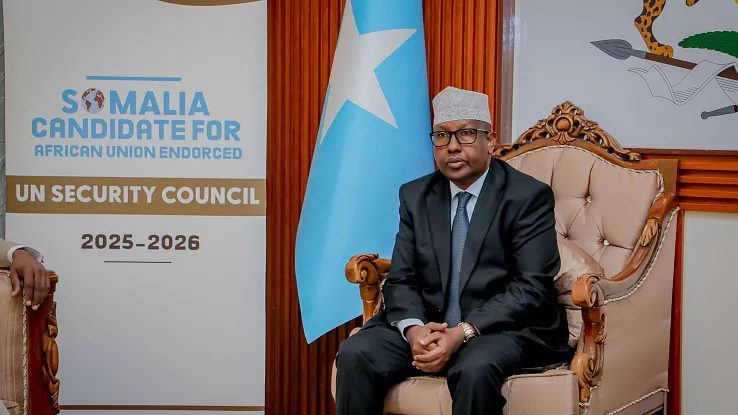Africa
Somalia Wins Security Council Seat After 50-Year Gap, UN Announces

Somalia was chosen on Thursday (Jun. 6) to serve on the UN security council as a non-permanent member for two years.
Denmark, Greece, Pakistan, and Panama also secured spots on the U.N. Security Council through a secret ballot in the General Assembly.
The 193-member world body elected five countries. The 10 non-permanent seats on the 15-member council are allocated to regional groups that typically nominate their candidates but sometimes face challenges in reaching a consensus. This year, there were no surprises.
The regional groups nominated Somalia for an African seat, Pakistan for an Asia-Pacific seat, Panama for a Latin America and Caribbean seat, and Denmark and Greece for two mainly Western seats.
The newly elected council members will commence their terms on Jan. 1, replacing those whose two-year terms conclude on Dec. 31 — Mozambique, Japan, Ecuador, Malta, and Switzerland.
They will join the five permanent members with veto power — the United States, Russia, China, United Kingdom, and France — as well as the five countries elected last year — Algeria, Guyana, South Korea, Sierra Leone, and Slovenia.
The Security Council is responsible for upholding international peace and security. However, due to Russia’s veto power, it has been unable to take action on Ukraine, and because of the strong U.S. ties to Israel, it has not called for a halt to hostilities in Gaza.
All five countries that secured seats on Thursday have previously served on the Security Council – Pakistan seven times, Panama five times, Denmark four times, Greece twice, and Somalia once.
Nearly every country agrees that almost eight decades after the establishment of the United Nations, the Security Council needs to evolve and represent the world in the 21st century, rather than the post-World War II era it currently reflects.
However, with 193 countries each having their national interests, the main question — and the primary disagreement — is how exactly to achieve this. For the past four decades, these disagreements have hindered any significant reform of the U.N.’s most influential body.
